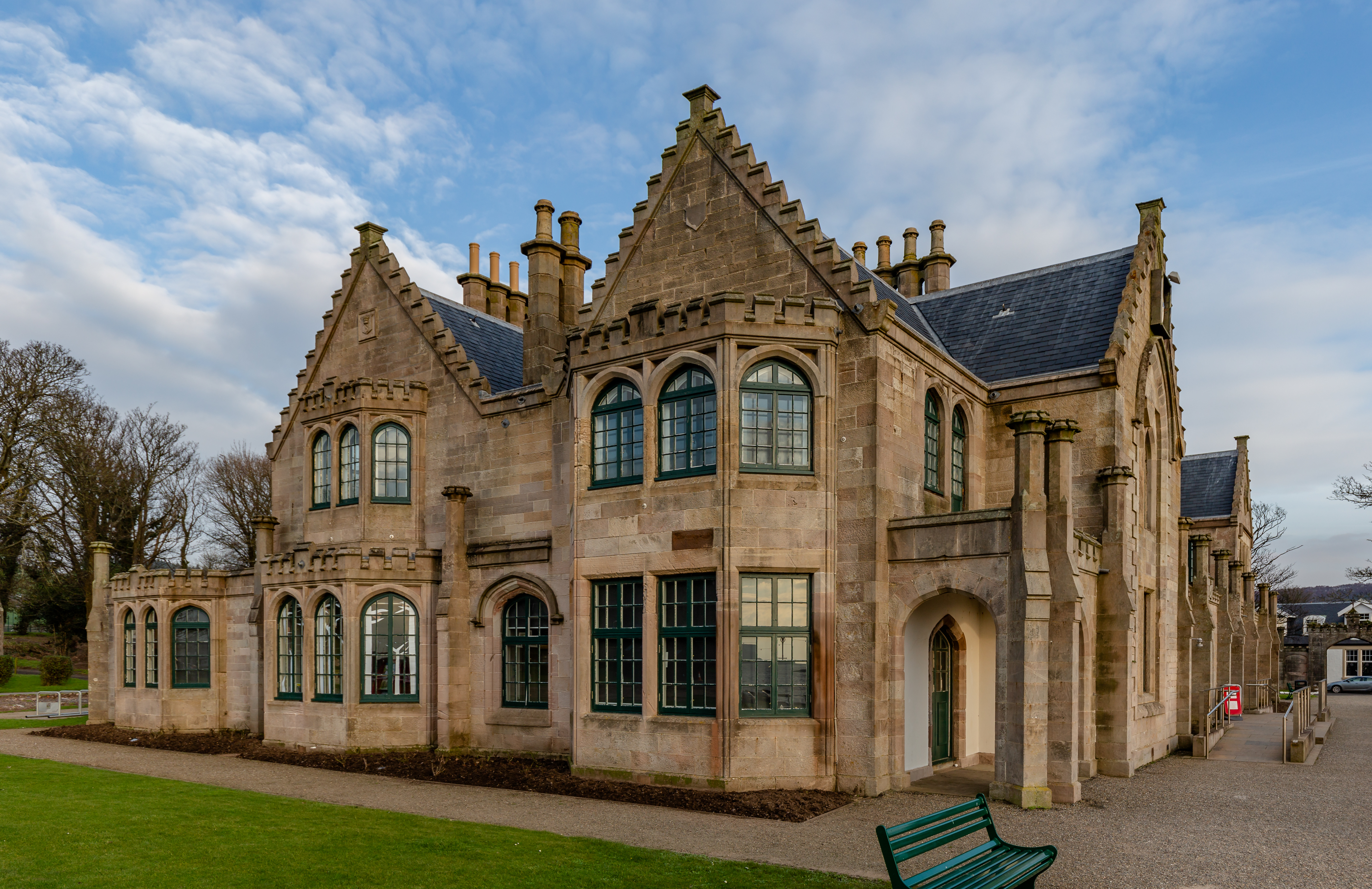|
Thomas Ball (Provost Of Cumbrae)
Thomas Isaac Ball was Provost (religion), Provost of Cathedral of The Isles, Cathedral of The Isles and Collegiate Church of the Holy Spirit, Millport, Isle of Cumbrae, Millport, Isle of Cumbrae from 1892 until his death on 3 August 1916. Ball was ordained in 1866 and served Curate, curacies and Incumbent (ecclesiastical), incumbencies in Edinburgh. He lived in a flat at 12 Hill Square in Edinburgh's South Side.Edinburgh and Leith Post Office Directory 1891-92 References [...More Info...] [...Related Items...] OR: [Wikipedia] [Google] [Baidu] |
Provost (religion)
A provost is a senior official in a number of Christian Churches. Historical development The word ''praepositus'' (Latin: "set over", from ''praeponere'', "to place in front") was originally applied to any ecclesiastical ruler or dignitary. It was soon more specifically applied to the immediate subordinate to the abbot of a monastery, or to the superior of a single cell, and it was defined as such in the Rule of St Benedict. The dean (''decanus'') was a similarly ranked official. Chrodegang of Metz adopted this usage from the Benedictines when he introduced the monastic organization of canon-law colleges, especially cathedral capitular colleges. The provostship (''praepositura'') was normally held by the archdeacon, while the office of dean was held by the archpriest. In many colleges, the temporal duties of the archdeacons made it impossible for them to fulfil those of the provostship, and the headship of the chapter thus fell to the dean. The title became ''prevost'' in ... [...More Info...] [...Related Items...] OR: [Wikipedia] [Google] [Baidu] |
Millport, Isle Of Cumbrae
Millport (Scottish Gaelic: Port a' Mhuilinn) is the only town on the island of Great Cumbrae in the Firth of Clyde off the coast of mainland Britain, in the council area of North Ayrshire. The town is south of the ferry terminal that links the island to the Scottish mainland. Due to its small size, the island and its town are often linked in the minds of visitors and residents and Cumbrae is often referred to as Millport. The island offers views across to the Isle of Arran as well as of its smaller neighbour which lies barely a kilometre away, called Little Cumbrae. The Cumbraes are referred to as the ''Kumreyiar'' in the medieval Norse '' Saga of Haakon Haakonarson''. Etymology The Gaelic name ''Cumaradh'' means "place of the Cymric people", referring to the Brittonic-speaking inhabitants of the Kingdom of Strathclyde. Alternatively, the name Cumbrae may derive from ''Kil Maura'' meaning "cell or church of a female saint". History The Garrison House in the centre of town, ... [...More Info...] [...Related Items...] OR: [Wikipedia] [Google] [Baidu] |
Isle Of Cumbrae
Great Cumbrae ( sco, Muckle Cumbrae; gd, Cumaradh Mòr; also known as Great Cumbrae Island, Cumbrae or the Isle of Cumbrae) is the larger of the two islands known as The Cumbraes in the lower Firth of Clyde in western Scotland. The island is sometimes called Millport, after its main town. Home to the Cathedral of The Isles and the FSC Millport field study centre, the island has a thriving community of 1,300 residents. Geography The island is roughly long by wide, rising to a height of above sea level at The Glaid Stone, which is a large, naturally occurring rock perched on the highest summit on the island. There is a triangulation pillar nearby, as well as an orientation point which indicates the locations of surrounding landmarks. In clear conditions, views extend north over the upper Clyde estuary to Ben Lomond and the Arrochar Alps. To the west, the larger islands of Bute and Arran can be seen, while on the other side of Knapdale the Paps of Jura may be visible. Loo ... [...More Info...] [...Related Items...] OR: [Wikipedia] [Google] [Baidu] |
The Times
''The Times'' is a British daily national newspaper based in London. It began in 1785 under the title ''The Daily Universal Register'', adopting its current name on 1 January 1788. ''The Times'' and its sister paper ''The Sunday Times'' (founded in 1821) are published by Times Newspapers, since 1981 a subsidiary of News UK, in turn wholly owned by News Corp. ''The Times'' and ''The Sunday Times'', which do not share editorial staff, were founded independently and have only had common ownership since 1966. In general, the political position of ''The Times'' is considered to be centre-right. ''The Times'' is the first newspaper to have borne that name, lending it to numerous other papers around the world, such as ''The Times of India'', ''The New York Times'', and more recently, digital-first publications such as TheTimesBlog.com (Since 2017). In countries where these other titles are popular, the newspaper is often referred to as , or as , although the newspaper is of nationa ... [...More Info...] [...Related Items...] OR: [Wikipedia] [Google] [Baidu] |
Ordained
Ordination is the process by which individuals are consecrated, that is, set apart and elevated from the laity class to the clergy, who are thus then authorized (usually by the denominational hierarchy composed of other clergy) to perform various religious rites and ceremonies. The process and ceremonies of ordination vary by religion and denomination. One who is in preparation for, or who is undergoing the process of ordination is sometimes called an ordinand. The liturgy used at an ordination is sometimes referred to as an ordination. Christianity Roman Catholic, Orthodox, Lutheran and Anglican churches In Roman Catholicism and Orthodoxy, ordination is one of the seven sacraments, variously called holy orders or '' cheirotonia'' ("Laying on of Hands"). Apostolic succession is considered an essential and necessary concept for ordination in the Catholic, Orthodox, High Church Lutheran, Moravian, and Anglican traditions, with the belief that all ordained clergy are ... [...More Info...] [...Related Items...] OR: [Wikipedia] [Google] [Baidu] |
Curate
A curate () is a person who is invested with the ''care'' or ''cure'' (''cura'') ''of souls'' of a parish. In this sense, "curate" means a parish priest; but in English-speaking countries the term ''curate'' is commonly used to describe clergy who are assistants to the parish priest. The duties or office of a curate are called a curacy. Etymology and other terms The term is derived from the Latin ''curatus'' (compare Curator). In other languages, derivations from ''curatus'' may be used differently. In French, the ''curé'' is the chief priest (assisted by a ''vicaire'') of a parish, as is the Italian ''curato'', the Spanish ''cura'', and the Filipino term ''kura paróko'' (which almost always refers to the parish priest), which is derived from Spanish. Catholic Church In the Catholic Church, the English word "curate" is used for a priest assigned to a parish in a position subordinate to that of the parish priest. The parish priest (or often, in the United States, the "pastor ... [...More Info...] [...Related Items...] OR: [Wikipedia] [Google] [Baidu] |
Incumbent (ecclesiastical)
In English ecclesiastical law, the term incumbent refers to the holder of a Church of England parochial charge or benefice. The term "benefice" originally denoted a grant of land for life in return for services. In church law, the duties were spiritual ("spiritualities") and some form of assets to generate revenue (the "temporalities") were permanently linked to the duties to ensure the support of the office holder. Historically, once in possession of the benefice, the holder had lifelong tenure unless he failed to provide the required minimum of spiritual services or committed a moral offence. With the passing of the "Pastoral Measure 1968" and subsequent legislation, this no longer applies, and many ancient benefices have been joined into a single new one. At one time, an incumbent might choose to enjoy the income of the benefice and appoint an assistant curate to discharge all the spiritual duties of the office at a lesser salary. This was a breach of the canons of 1604, but ... [...More Info...] [...Related Items...] OR: [Wikipedia] [Google] [Baidu] |
Edinburgh
Edinburgh ( ; gd, Dùn Èideann ) is the capital city of Scotland and one of its 32 Council areas of Scotland, council areas. Historically part of the county of Midlothian (interchangeably Edinburghshire before 1921), it is located in Lothian on the southern shore of the Firth of Forth. Edinburgh is Scotland's List of towns and cities in Scotland by population, second-most populous city, after Glasgow, and the List of cities in the United Kingdom, seventh-most populous city in the United Kingdom. Recognised as the capital of Scotland since at least the 15th century, Edinburgh is the seat of the Scottish Government, the Scottish Parliament and the Courts of Scotland, highest courts in Scotland. The city's Holyrood Palace, Palace of Holyroodhouse is the official residence of the Monarchy of the United Kingdom, British monarchy in Scotland. The city has long been a centre of education, particularly in the fields of medicine, Scots law, Scottish law, literature, philosophy, the sc ... [...More Info...] [...Related Items...] OR: [Wikipedia] [Google] [Baidu] |
Clergy From London
Clergy are formal leaders within established religions. Their roles and functions vary in different religious traditions, but usually involve presiding over specific rituals and teaching their religion's doctrines and practices. Some of the terms used for individual clergy are clergyman, clergywoman, clergyperson, churchman, and cleric, while clerk in holy orders has a long history but is rarely used. In Christianity, the specific names and roles of the clergy vary by denomination and there is a wide range of formal and informal clergy positions, including deacons, elders, priests, bishops, preachers, pastors, presbyters, ministers, and the pope. In Islam, a religious leader is often known formally or informally as an imam, caliph, qadi, mufti, mullah, muezzin, or ayatollah. In the Jewish tradition, a religious leader is often a rabbi (teacher) or hazzan (cantor). Etymology The word ''cleric'' comes from the ecclesiastical Latin ''Clericus'', for those belonging to t ... [...More Info...] [...Related Items...] OR: [Wikipedia] [Google] [Baidu] |
Alumni Of The University Of Aberdeen
Alumni (singular: alumnus (masculine) or alumna (feminine)) are former students of a school, college, or university who have either attended or graduated in some fashion from the institution. The feminine plural alumnae is sometimes used for groups of women. The word is Latin and means "one who is being (or has been) nourished". The term is not synonymous with "graduate"; one can be an alumnus without graduating (Burt Reynolds, alumnus but not graduate of Florida State, is an example). The term is sometimes used to refer to a former employee or member of an organization, contributor, or inmate. Etymology The Latin noun ''alumnus'' means "foster son" or "pupil". It is derived from PIE ''*h₂el-'' (grow, nourish), and it is a variant of the Latin verb ''alere'' "to nourish".Merriam-Webster: alumnus .. Separate, but from the s ... [...More Info...] [...Related Items...] OR: [Wikipedia] [Google] [Baidu] |







